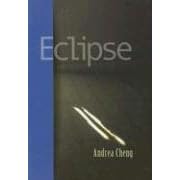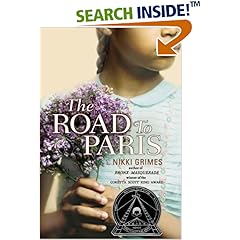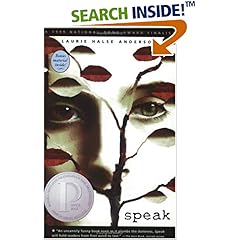 I read these three books all in April and saw similarities although each is very different from the others in terms of tone and audience.
I read these three books all in April and saw similarities although each is very different from the others in terms of tone and audience.
Eclipse by Andrea Cheng. Published in 2006, Eclipse is set in 1952. Peti is a precocious eight year old boy whose family immigrated to the United States from Hungary. Unfortunately, his grandfather and other family members are still trapped in Communist Hungary, and also unfortunately, his aunt, uncle, and cousin are coming from Australia to live with Peti’s family. It’s unfortunate because twelve year old Cousin Gabor is not a nice person, and Peti, a very talkative and engaging young narrator, ends up with more problems than he can handle.

The Road to Paris by Nikki Grimes. Paris and her older brother Malcolm have lived with their alcoholic mother and her abusive boyfriend (not good), have survived an abusive foster home together (not good either), and now they’re separated: Malcolm in a group home, and Paris in a foster home that seems like heaven after all the trouble she’s seen. But Paris misses Malcolm, and she still loves her mom, Viola, even though she doesn’t trust her to take care of her children. So, what will Paris do when she has the opportunity to go back and live with her birth mother and her beloved brother? Will she leave the foster home where she’s experienced love and safety? Or will she stay with her foster family even without Malcolm?

Speak by Laurie Halse Anderson. Melinda on entering high school: “We fall into clans: Jocks, Country Clubbers, Idiot Savants, Cheerleaders, Human Waste, Eurotrash, Future Fascists of America, Big Hair Chix, the Marthas, Suffering Artists, Thespians, Goths, Shredders. I am clanless. I wasted the last weeks of August watching bad cartoons. Ididn’t go to the mall, the lake, or the pool, or answer the phone. I have entered high school with the wrong hair, the wrong clothes, the wrong attitude. And I don’t have anyone to sit with.”
What do these three books have in common? In each book the child protagonist is abused and unable to find a way to tell anyone about the abuse. Paris and her brother run away together from the abusive abusive foster home almost at the beginning of the story, and the rest of the story is really about Paris’s new home with good foster parents who help her learn to trust again. Peti finally works out a way to escape or make peace with his tormentor. Melinda fights back, first with silence and sarcasm and art, then finally with words and screams and physical actions.
Of the three, The Road to Paris is most appropriate for younger children, second to fifth grade. It’s a gentle story, and it doesn’t focus too much on racism and child abuse although both are present in the story. Paris learns to trust in God and to trust in those who prove by their actions that they are trustworthy, and those are good lessons for any child —or adult —to learn.
I really liked Peti, the narrator of Eclipse. He’s childlike in his curiosity and his incessant need to ask questions, but he’s caught up in worries and situations that are way too complicated and difficult for a child to understand no matter how many questions he asks. In fact, I wonder how many children who can read the book will understand that Peti’s grandfather is sent to a work camp in Communist Hungary or that Cousin Gabor is acting out his own insecurities and taking out his hostilities on Peti. And it bothers me that the ending, although realistic, doesn’t feel safe. Reading level: third or fourth grade. Understanding level: Eighth, ninth or even tenth grade.
Speak was the most haunting and memorable of the three books. It’s definitely a YA title because of the subject matter and tone of the narration, and parents will want to read it before allowing even their high school students to read. However, the book is an excellent response to a problem that is all too common. I don’t want to tell what that problem is because that’s part of the suspense of the book. But, again, parents should read the book first. In fact, not only should parents read, but I would advise you to keep reading. At first I thought the narrator Melinda was a snotty, defiant little pain in the neck, out to nail anyone and everyone with her private wit and her public silence, but there’s more going on in this novel than meets the eye. And Melinda turns out to be a brave and resilient young lady —even though she wouldn’t like being called a young lady.
Has anyone seen the movie based on this last book? Is it any good?
i have been wanting to read this book for ages and now it’s on my list for the saturday book review challenge. and to answer your question, YES, the movie is wonderful. i haven’t read the book yet but it made me only want to read it more. and i thought the actress who played melinda did an excellent job of creating depth and portraying an abused character and what the aftermath is like. if you do wind up seeing it i would be interested to know what you think of it.